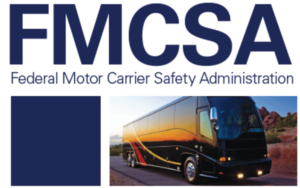Truck drivers play an essential role in the health of our economy. The trucking industry is worth around $700 billion and makes up around 5% of the total full-time jobs in the United States. While it is sometimes easy to focus on the shippers and carriers, truck drivers power the entire industry. In this context, negligence when hiring truck drivers can have serious consequences. They do outstanding work and shouldn’t be taken for granted.
But there is a harsh truth within the trucking industry. That is the negligent hiring of truck drivers.
Many “Motor Carriers” or trucking companies hire inexperienced and inadequately trained commercial truck drivers. These drivers may seem qualified on paper. For example, they may have a commercial driver’s license (“CDL”) and may have carried several loads for one or several shippers.
But having said this, the inexperience of these truck drivers endangers everyone on the road. Even if accidents do not occur, these unqualified truck drivers create risks to those around them daily. Texas has more fatal truck wrecks than any other state, and Houston leads the statistics.
Instead of hiring these inexperienced and inadequately trained drivers, trucking companies must have higher standards for themselves. They must follow all rules and best practices to protect the motoring public and their drivers.
Negligent Hiring and Truck Accident Lawsuits
Negligent hiring and retention can cause citations for the company and provide a truck accident attorney with compelling evidence of negligence in a personal injury lawsuit. It is often only after a lawsuit is filed and evidence obtained in lawsuit discovery that the trucking company’s negligent actions are discovered.
Untrained or inadequately trained truck drivers are appealing to hire for many Motor Carriers. Even if they don’t have much experience, their lack of experience means they will be cheaper. A trucking company trying to cut costs, increase bottom lines, and decrease operating expenses by hiring the cheapest drivers happens frequently.
Untrained or inexperienced drivers get into accidents at an alarming rate. Worse, the driver can operate a big rig weighing up to 80,000 pounds. And an 18-wheeler truck accident, severe personal injury is likely. In short, hiring or keeping unsafe drivers in violation of the rules is evidence of negligence on the part of the Motor Carrier.
FMCSR and Negligent Hiring and Retention

Instead of hiring inexperienced and untrained truck drivers, Trucking companies must follow the Federal Motor Carrier Safety Regulations (“FMCSR”).
The Federal Motor Carrier Safety Administration (“FMCSA”) regulates commercial vehicles, drivers, and Motor Carriers. There are regulations related to driver experience and training. When a company ignores the rules or keeps an unsafe driver on the payroll, it may amount to negligence.
It is often only after a severe injury crash that a truck accident investigation shows negligent hiring or training.
Training Requirements for Truck Drivers
FMCSA recently amended entry-level driver training (“ELDT”) regulations that went into effect on February 7, 2020. This amendment was relatively minor, as it adopted a new Class A CDL theory instruction upgrade curriculum to reduce training time and costs by Class B CDL holders upgrading to a Class A CDL.
The main training requirements can be found in 81 FR 88732. The entry-level driver training rule creates a minimum standard for entry-level drivers of commercial motor vehicles.
The regulation requires that truck drivers complete certain CDL skills test requirements. Those requirements include range and public road segments (including discrete maneuvers). While there are no minimum proficiency hours for new driver-trainees, they must be able to demonstrate their skills to training instructors proficiently.
Ultimately, Motor Carriers must ensure under the federal regulations of truck drivers that their drivers are fully trained and can navigate the challenges they encounter while on the road. Unfortunately, today our big rig accident law firm sees many examples of companies cutting corners and hiring drivers who should not be operating tractor-trailers.
An unlicensed driver operating a big rig can amount to negligent entrustment in Texas.
Driver’s Qualification Files
Section 391.51 of the FMCSR generally requires driver qualification files. There are many requirements when creating a driver’s qualification file.
Some of those requirements include the driver’s application for employment, a list or certificate related to violations of motor vehicle laws and ordinances, a copy of the motor vehicle record received from each state record, a medical examiner’s certificate, and a skill performance evaluation certificate obtained from a field administrator.
Section 391.51 all essential safety rules. Also, FMCSA’s guidance in section 391.51 is critical. For instance, the guidance states that drivers need not be requalified when a motor carrier purchases another motor carrier.
Critically, the guidance states that if a motor carrier maintains complete driver qualification files but cannot produce them at the time of review or within two business days, that motor carrier will violate section 391.51.
A trucking company that does not meet the minimum safety rules to the letter can be sued for negligence by a truck accident lawyer if a severe accident occurs.
Screening and Reference Checks
Motor Carriers must keep the driver’s safety information on file to comply with Section 391.51. Trucking companies must pay close attention to your prospective driver’s background, experience, tickets, and medical issues.
In section 391.51(b)(7)(i), the driver’s medical examiner’s certificate must be on file. Failing to have this documentation or being satisfied with the driver’s documentation can lead to evidence in a personal injury or wrongful death case.
Beyond driving records, however, trucking companies must monitor potential drivers’ driving history. Since employment, if the driver has had issues such as moving violations or injury accidents, a claim of negligent retention can be made by an attorney for truck wrecks.
Negligent retention is when the company should have fired the unsafe driver but kept him on. Our Houston truck accident lawyers have won many cases where training and retention were the central themes of our case. Hire a truck accident lawyer right away after an injury accident to help get and preserve important evidence.
Trucking Company Negligence
Motor Carriers must follow the training and compliance rules of the FMCSR. As a trucking company, they must follow these regulations. After an injury accident with an 18-wheeler, the best truck accident lawyer will demand the complete driver’s qualification file in a truck accident lawsuit.
Also, a top-rated truck accident attorney will likely run a background check on the diver involved in the accident.
Trucking accident statistics prove inexperience can lead to accidents.
Baumgartner Law Firm’s Negligent Hiring Truck Accident Victories
The Jackknife Truck Crash
- A smaller Motor Carrier hired an inexperienced driver without ensuring he was safe and giving him a real driving test. The driver, who had been on the job less than four months, lost control of the tractor-trailer and jackknifed the rig across the highway, killing an innocent person. Our fatal truck accident lawyers proved negligence by the driver and the company. Our clients received a huge 7-figure settlement before trial.
Cheating on Logbooks Accident
- A company retained a driver who was cheating on his logbooks and allowing the driver to drive over the allowed hours. A careful examination of the logbooks and cell phone records in our truck accident investigation showed the company should have been aware of the violations and fired the driver. The driver driving over the allowed hours hit our client’s vehicle. After we sued the truck driver, we discovered the many rule violations, and the company settled the case by paying our whole multi-million dollar demand!
Call the Leading Truck Accident Lawyer in Houston for Help!
Our award-winning truck accident lawyer helps truck crash victims in Houston and across Texas and is UNDEFEATED in over 35 years of handling 18-wheeler accident lawsuits.
Never a Charge for an Initial Case Consultation
Call (281) 587-1111.
6711 Cypress Creek Pkwy, Houston, TX, 77069
Related Commercial Vehicle Accident Pages:
Houston Jackknife Accident Lawyer
Houston FedEx Accident Lawyers
Amazon Accident Lawyer in Houston, TX
Houston Fatal Truck Accident Lawyer
Blind Spot Truck Accident Lawyer in Houston













